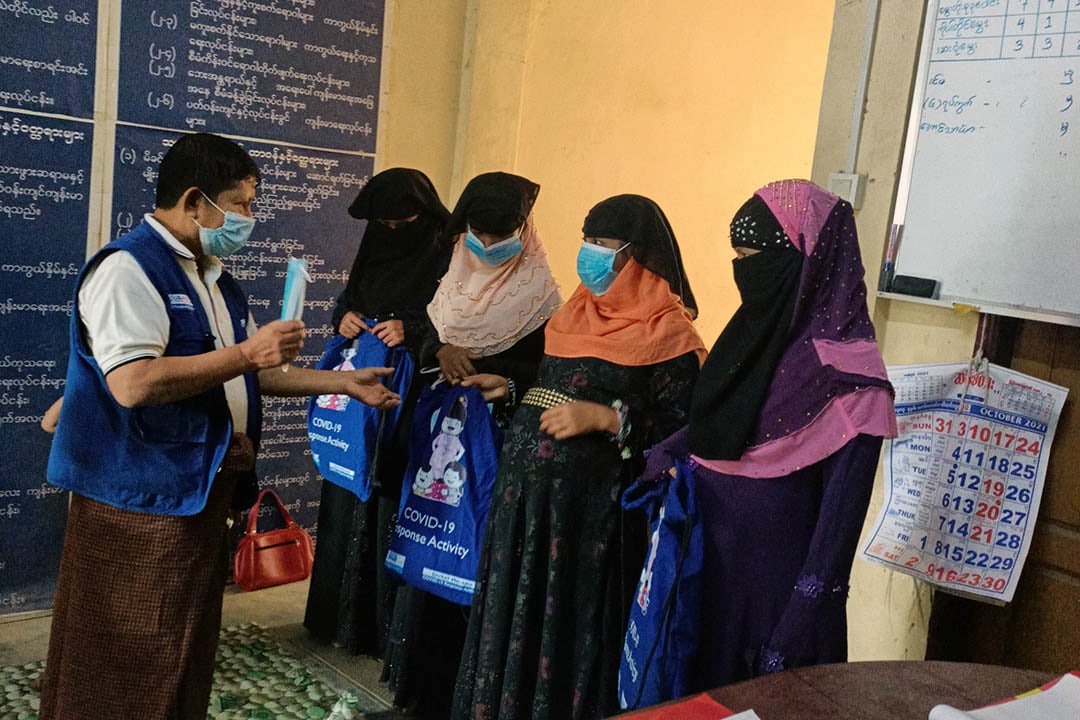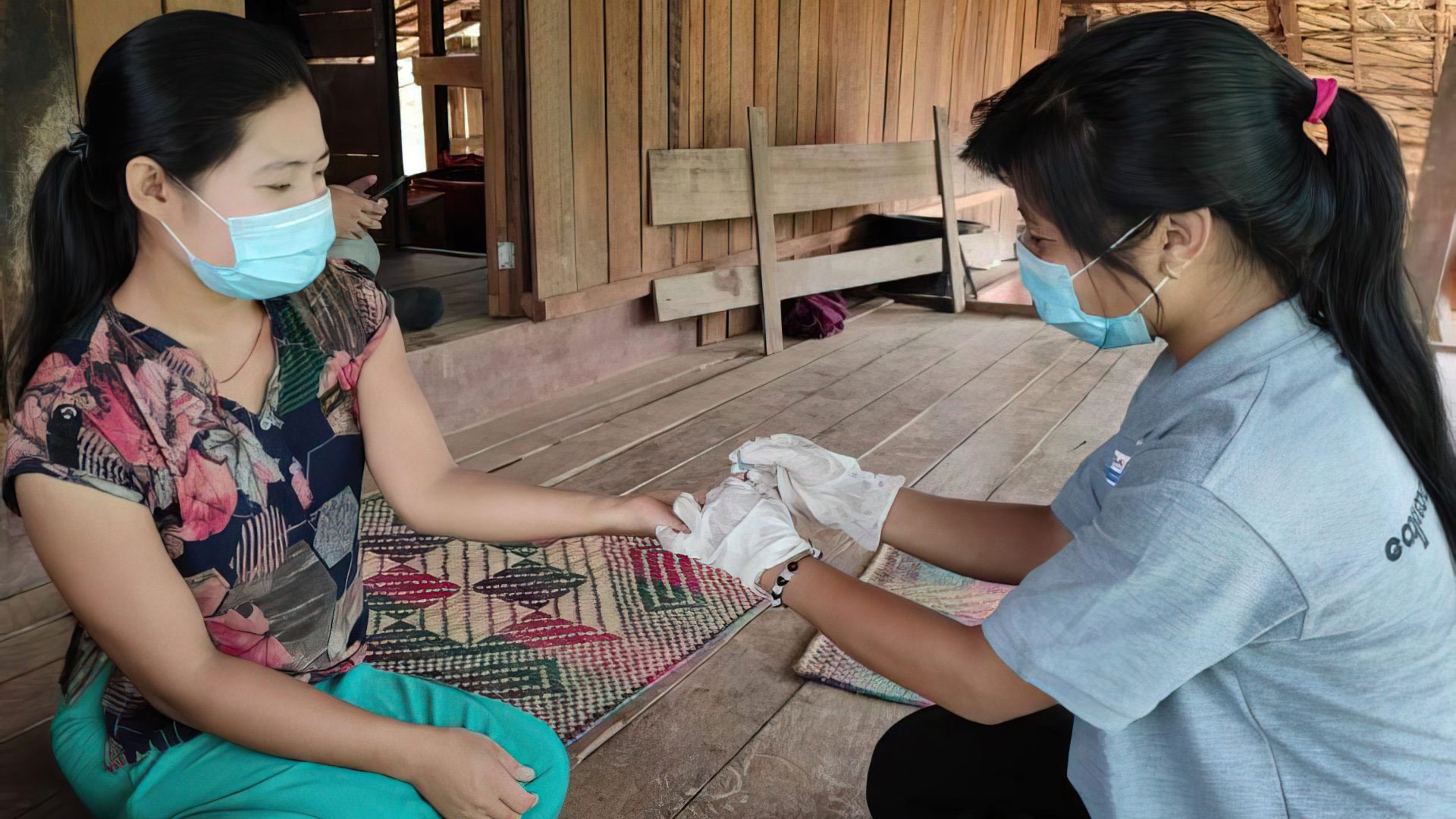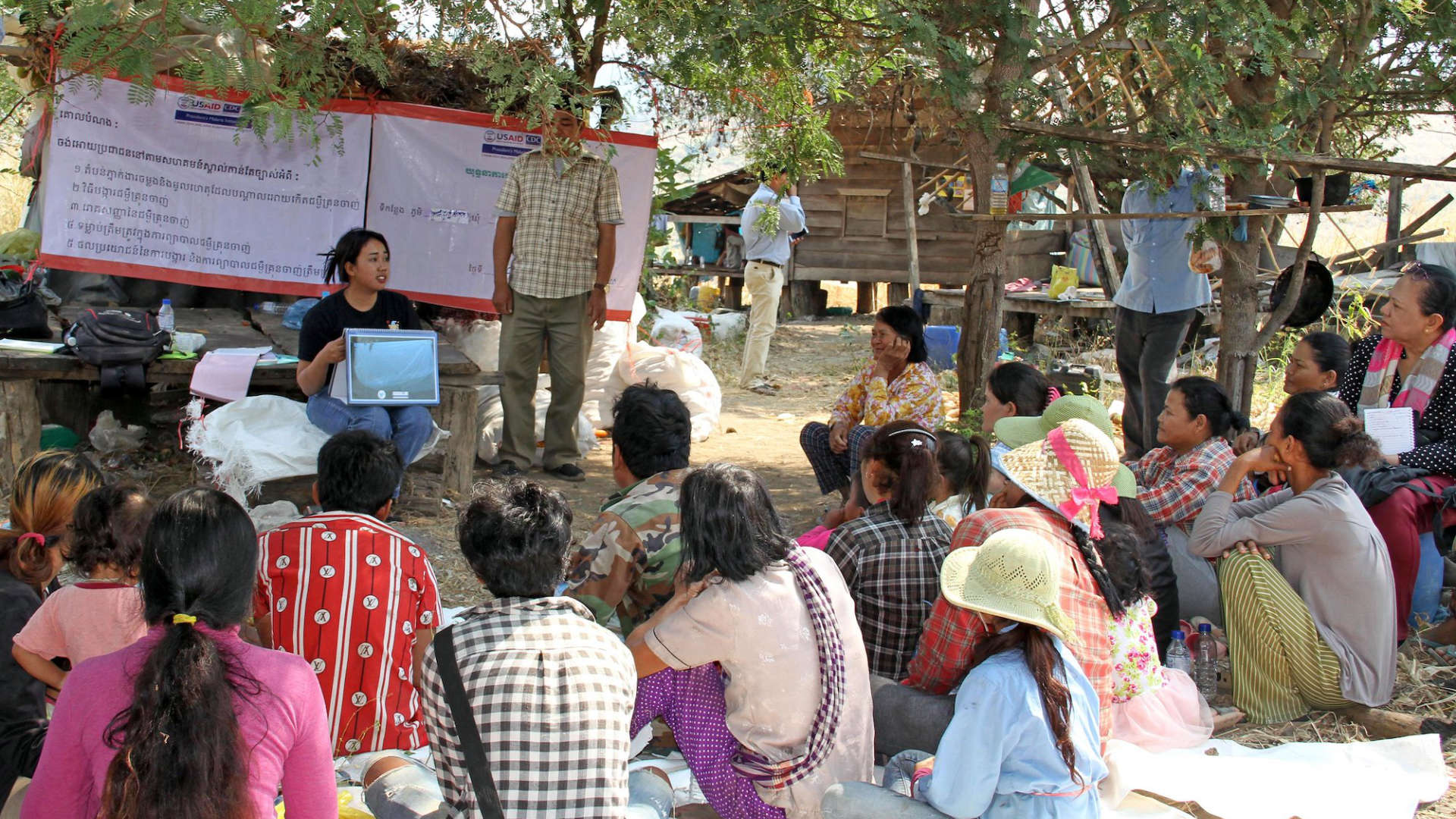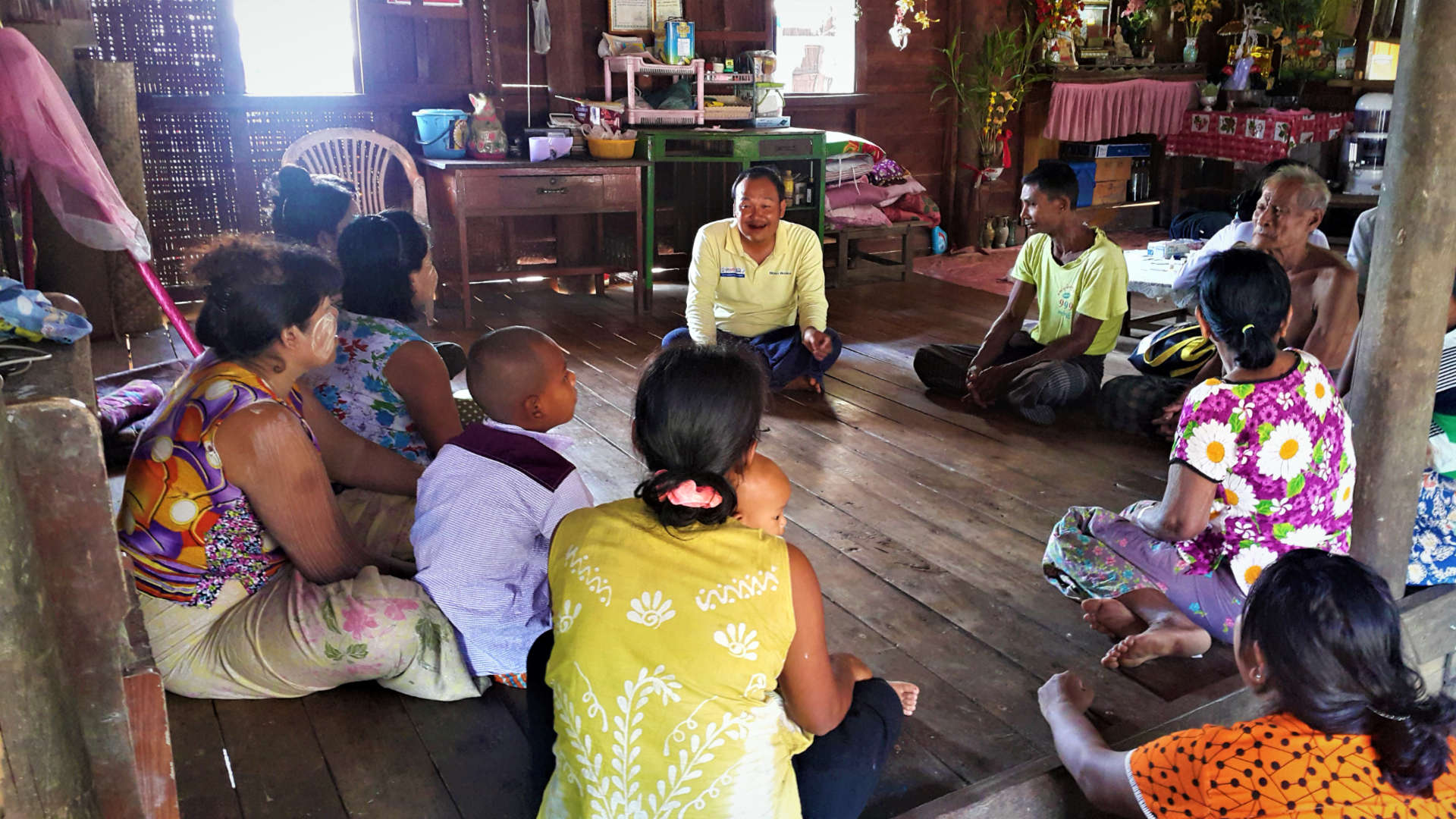Despite a relatively low early COVID-19 caseload, Myanmar has been significantly impacted by COVID-19 in subsequent stages of the pandemic. During August and September 2020, Rakhine State, which borders Bangladesh and is subject to unrestricted cross-border migration, and associated COVID-19 transmission, experienced the most severe initial COVID-19 outbreak in the country.
USAID and the U.S. President’s Malaria Initiative (PMI) responded to Myanmar’s pressing needs for COVID-19 support by funding the COVID-19 Response Activity, integrated within URC’s Defeat Malaria Project. The work was carried out in the high-burden townships of Rakhine State from June 2021 to March 2022 in collaboration with state/township health departments.
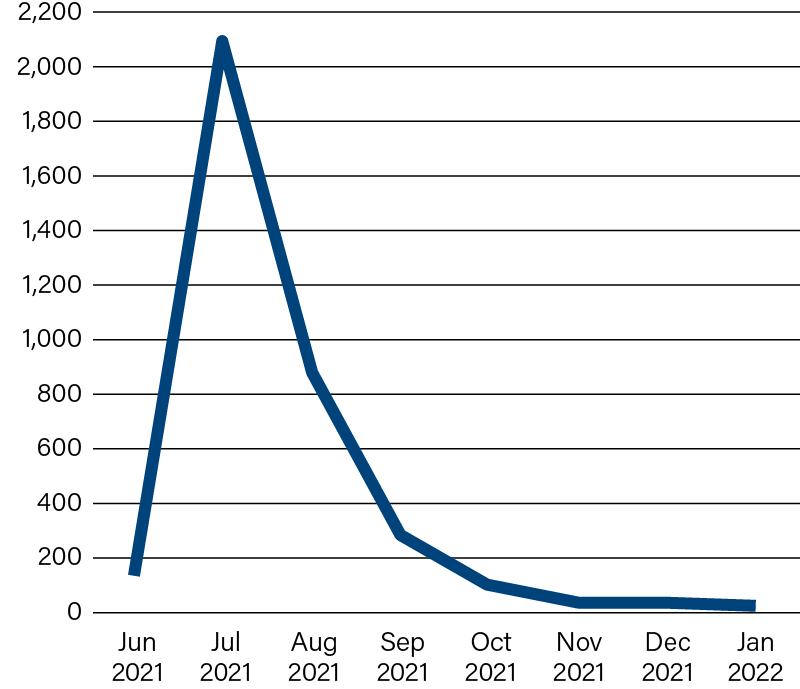
A Comprehensive Response
Activities focused on clinical training related to COVID-19 care, vaccinations for nurses and midwives, and quality assurance of COVID-19 rapid testing at the clinical level. In the community, activities included extensive contact tracing, distribution of risk communications and community engagement (RCCE) products such as COVID-19 educational materials, promotion of protective behaviors (including use of personal protective equipment, social distancing, and vaccine acceptance), and support to pregnant women infected with COVID-19 as well as for new mothers in home isolation.
Support for pregnant women – regardless of COVID-19 status – included provision of an antenatal kit backpack containing personal protective equipment and an informational brochure about COVID-19 in pregnancy. Likewise, pregnant women with COVID-19 received nutritional support and referrals to nearby clinics.
And the Activity trained twelve newly recruited staff in the implementation townships to carry out the COVID-19 response activities.
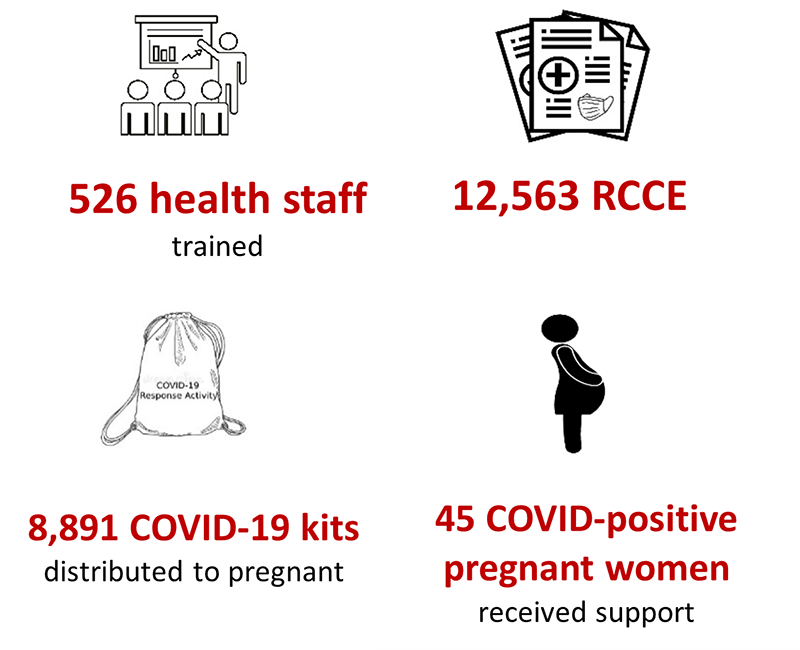
Impact – Testimonies
A 27-year-old pregnant migrant woman developed a fever, loss of smell, and shortness of breath that led her to seek care at a health center in Ann Township. She was found to be COVID-19 positive. At the health center, she received a referral for care, and nutrition support in close coordination with the health staff providing her care. As a result, she was admitted to a hospital for 11 days.
“My husband and I earn our livings as factory workers in Yangon. We cannot afford the cost of delivery in Yangon and that’s why I returned to my village, where I can afford care. I am so grateful – that support saved my life during a difficult time,” she said.
A lady health visitor (a basic health staff position in Myanmar focused on women’s health) said:
“I am deeply impressed with the health care support she received from the COVID-19 Response Activity in a time of great need.”
Expressing support for the COVID-19 assistance, a township medical officer commented:
“This is a great opportunity for Rakhine State, especially for poor people living in rural and remote areas. At the time of the COVID-19 surge, there are many difficulties for health staff in the control and prevention of COVID-19. Luckily, we have – to some extent – relieved our concerns and worries thanks to the great support from the COVID-19 Response Activity. In the third wave of a COVID-19 surge, we overcame many challenges and constraints thanks to USAID.”
